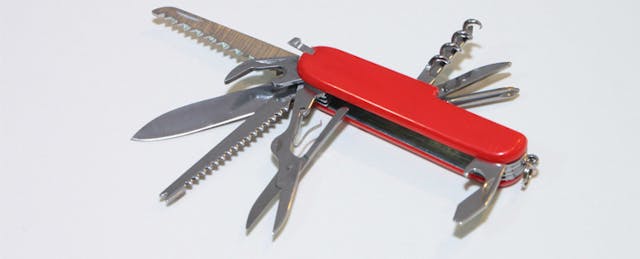You’ve probably heard of teacherpreneurs. They’re amazing folks who want to effect change in classrooms on a large scale by combining their teaching skills with their business acumen.
There are lots of edtech entrepreneurs without a teaching background, though. Several months ago, I wrote a piece, “The Do’s and Don’ts of Pitching to Schools,” for these non-teacher CEOs. It struck a chord, it seems; dozens of entrepreneurs contacted me asking for more advice. Clearly, edtech companies want to better understand and communicate with educators.
I have one more piece of advice for startups looking to get into schools. This time, it’s fairly simple: hire someone else to do it.
One of these follow-up calls was from a young edtech company called Parlor that was looking for some guidance in reaching out to the K-12 market. The founder asked to chat over coffee about getting its critical reading tool into classrooms. As a former history teacher, I have a special place in my heart reserved for edtech that understands and aims to enhance the humanities, so I was especially eager to help Parlor. After offering a few pieces of guidance regarding budget cycles in schools, curricular restrictions, and pressures on teachers to justify edtech purchases, the founder offered me something in return--the position of Academic Liaison.
Now a month into this role, I believe that every edtech company needs an Academic Liaison. There are certain activities in an edtech company best performed by someone who understands life in a classroom and in a faculty lounge. So what are these duties? The job description centers on four duties:
1. K-12 pilot evangelism and support
Because I’ve taught before, it’s easy for me to understand whether a teacher would benefit from our product. Then I can work with the teachers, much like I do in my day job as a technology integrator. Once we decide together that Parlor will help them, we’ll develop units and lesson plans for use in the pilot.
When I previously demoed products as a teacher or an integrator, I’ve appreciated this sort of guidance in how to best use a product, even if I have some ideas of my own. Two heads are better than one, as they say.
2. Voice of the K-12 customer to the product team
Similarly, and as I mentioned in the “Do’s and Don’ts article,” unrealistic examples of technology integration in demos or pitches do more harm to a product than good. Knowing how to craft a workable lesson plan goes a very long way in promoting a product. Teachers don’t have the time to test every single new tool. Your Academic Liaison can do some of the testing for the teachers, demonstrating in terms they trust that the product can work in certain real world scenarios.
3. Develop collateral (written site content and videos explaining the product, sample lesson plans, Common Core alignment, etc.)
Your Academic Liaison can also serve an essential role in product development. As the product evolves, I can bring my experience and the lessons drawn from observation of the pilots to the product team, suggesting features and changes that could make the product more helpful to teachers. It’s much easier to grasp why something does or doesn’t work in a classroom if you’ve been in the same situation yourself. And some things are just impossible to anticipate without seeing them first hand--like what features will be distractions for kids, which will be ignored, or which ones parents will love.
4. Online advocacy, especially on Twitter
Teachers can be great marketers too. It’s likely the people interested in filling an Academic Liaison role are already highly engaged in the online community of educators. I participate in #edchat as often as I can, read EdSurge several times a week, and follow more blogs than is manageable in my Feedly. In fact, I know I speak for many thousands of my colleagues nationwide in saying that our best PD over the past several years has happened on Twitter or on the blogs.
It’s no trouble for me to start Tweeting using Parlor’s account and debate the merits of “connected educators” or the problems with high-stakes testing. I love to see companies engage these debates without a concern for being somewhat controversial. Stand for something! Be engaged! Show you care! An Academic Liaison can be extremely helpful in helping you enter the fray in these discussions.
I can assure you that teachers will love the role too. It’s a lot of fun to see what goes on in these companies who work tirelessly to support us. I, for instance, had no idea how hard it is to make Parlor easy to use for teachers.
The founders, designers, and engineers at these edtech companies spend every waking hour thinking about how to make your class great. As more of them start carving out Academic Liaison positions, it may be a good alternative to your typical after-school tutoring gig or summer work. You can have a real impact on the future of edtech and, therefore, education. It’s truly the best of both worlds.


